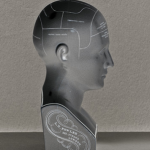Internet Freedom and Human Rights
In her recent speech in Washington DC, U.S. Secretary of State Hillary R. Clinton spoke of the Internet as the “new nervous system for our planet,” and about protecting its “basic freedoms.” She stopped short of advocating a human right to Internet #freedom. Her idea was that “we need to synchronize our technological progress with our principles” (Clinton), the principles that engendered the UDHR. She continued to expand the analogy to HR with the statement that “the freedom to connect is like the freedom of assembly, only in cyberspace.” It is clear that the Internet plays a vital role in the pursuit of #human rights and development. And yet, should Internet freedom be considered a human entitlement on its own, and what is its role in development?
As Secretary Clinton has argued, Internet freedom may be as important as freedom of speech and freedom of worship. The Internet today is as a place where people can “seek, receive and impart information and ideas […] regardless of frontiers.” (UDHR, Article 19) and where people congregate to communicate or share religious views. Beyond just communications, one can use the capabilities approach developed by Amartya Sen to argue that the Internet should be part of the freedoms necessary to human rights and development.
The Internet emerged as a free-for-all platform. Today it has probably reached its threshold of accountability. Jonathan Zittrain of Harvard sees an increasingly chaotic and insecure architecture that will become inoperative. This path leads to government control in “an international effort to establish some rules over internet connectivity” (Clinton) to protect freedom of speech, but that will stifle transparency. The central issue of Internet Freedom then becomes censorship and filtering.
Internet censorship happens today on a global scale. Several methods of circumvention are available, but it is a very costly task and, as Zuckerman has argued, not viable given the scale and diversity of Internet traffic. A related problem is that circumvention engenders the need for anonymity, and digital anonymity means trouble. It is hard to argue for Internet freedom and anonymous use of the Internet at the same time. However, anonymity is a central tenet of freedom of speech. Being anonymous in a not-connected world is different from being so in the Internet.
Circumvention and anonymity being hardly viable on a global scale, the issue becomes real political change in society, rather than workarounds. (See Zuckerman) Has the free use of the Internet brought about change in regimes that violate human rights? This is a crucial and much debated question. There are several theories and examples of both positive and negative outcomes. No thorough study is available today.
One theory is the Public Space Theory (Zuckerman): the Internet becomes a space where people can freely communicate and have access to information in a way that was impossible before. This new open space creates the conditions for political change. For example, the use of Blogs in China by dissidents. But also how the Belarusian state uses new and free Internet content to keep the population from seeking information outside the country (See Morozov).
A second theory is the Twitter Revolution Theory (Zuckerman): With the advent of social networks and the rapid exchange of information, new forms of organization and collaboration are possible. This in turns puts pressure on governments to change. One successful example is the response to the terrorist attacks in Mumbai launched by a 13 year-old using social networks (Clinton). But also the example of how the Belarus government easily infiltrated social networks to anticipate demonstrations by flash-mobs (Morozov).
The reality is that Internet freedom has successes and failures. Totalitarian regimes and malicious groups have access to the same technologies and capabilities, and they put them to use as effectively. The Internet is a technology that allows total freedom, but also total control. Digital control is effective because it is easy to implement: one cannot circumvent control points when properly built. Then, “new digital spaces for dissent also lead to new ways of tracking it,” (Morozov) with the result that “social media has created social panopticon,” (Morozov) thus destroying any kind of effective resistance and organization.
Beyond political issues, Internet freedom has a role in development and poverty alleviation. The Rights Based Approach (RBA) to development insists that participation is a key element of the process. In RBA there are no recipients of aid, there are rights-bearers, persons in society entitled to development, and duty-bearers, or the organizations responsible for providing development services. As seen above, Internet freedom may increase civic participation and transparency, with some risks and setbacks associated. However, which technology does not comprise some risk? Rights-bearers using Internet tools may participate in the process and hold the duty-bearers accountable for their actions, in a form of “social accountability.” Further, Internet access and participation may increase the educational levels of the population. Development projects often have better outcomes when people are educated (Mahal). So, Internet Freedom is something that should be promoted and implemented. Clinton acknowledges that the Internet “can be harnessed for good or for ill,” so the US stands for “a single internet where all of humanity has equal access […]” (Clinton). In such a light, the equal access to the Internet becomes a part of the development entitlements in RBA.
=
References
Clinton, Hillary R. Remarks on Internet Freedom, The Newseum, Washington, DC, January 21st, 2010.
http://www.state.gov/secretary/rm/2010/01/135519.htm (retrieved on February 27th, 2010)
Morozov, Evgeny. How Dictators watch us on the Web. Prospect Magazine, UK, 18th November 2009.
http://www.prospectmagazine.co.uk/2009/11/how-dictators-watch-us-on-the-web/ (retrieved February 27th, 2010)
Sen, Amartya. Development as Freedom. New York: Anchor Books. 2000
Zittrain, Jonathan. The Future of the Internet — And How to Stop It. New Haven, CT.: Yale University Press. 2009.
Zuckerman, Ethan. Internet Freedom: Beyond Circumvention. Blog Post on the 22nd February 2010,
http://www.ethanzuckerman.com/blog/2010/02/22/internet-freedom-beyond-circumvention/
(retrieved on February 28th, 2010)







2 thoughts on “Internet Freedom and Human Rights”